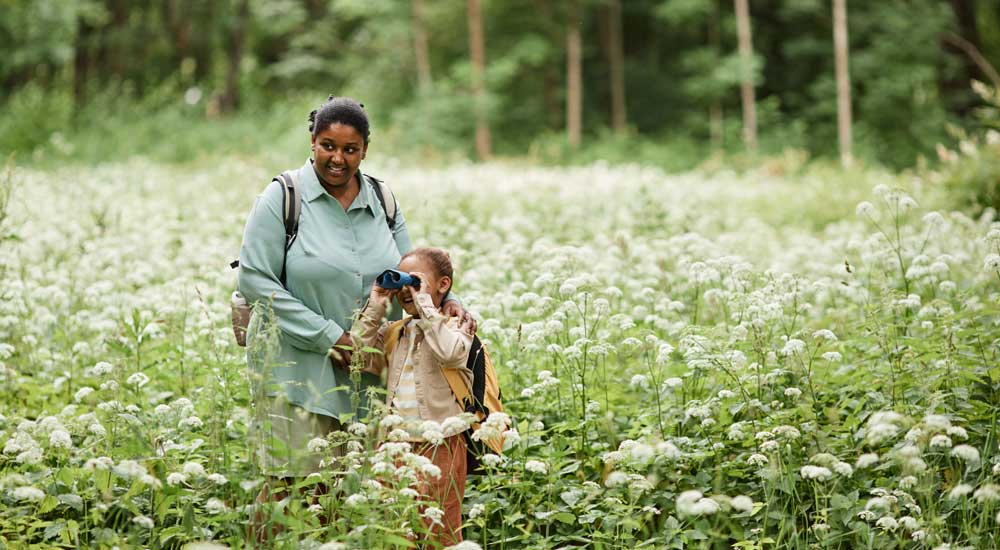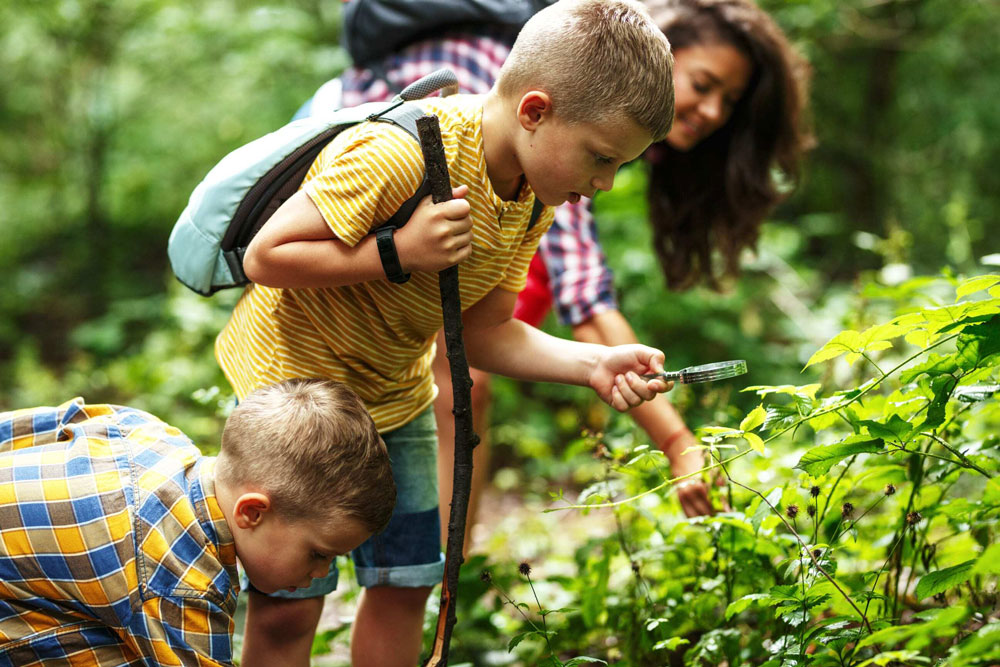Benefits of Bird-watching and How To Get Started
April 25, 2024

Being in nature has major health benefits*. If you’ve ever spent an afternoon in a park pausing to enjoy the view, you understand. Time spent outside can be calming*.
Studies also suggest it can benefit more than just your mood*. There are plenty of ways to spend time outside to improve your health. You can pick up pickleball, go camping, explore our state’s seven wonders or grab a boat to paddle.
Or maybe you want to consider bird-watching (also called “birding”). Bird-watching is an activity that anyone can do anywhere at anytime.
“Bird-watching is a great way to connect with nature. Studies show that more time in nature is associated better health,” says Matt Johnson, center director for the Audubon Center at Francis Beidler Forest*.
Listening to bird songs can improve mental health*. Even listening through headphones helps ease negative feelings. Bird-watching can also improve your mental acuity. It requires alertness to spy the birds and identify them.
“You’ll often pick up on plants, insects and other neat wildlife you probably wouldn’t have noticed before,” says Jennifer Tyrrell, Engagement Manager for Audubon South Carolina. “It’s a great way to get outside and off screens. That alone is very beneficial for your mental health. It’s also a fun game, kind of like the original Pokémon Go, or a lifelong scavenger hunt to collect species.”
It is hard to be distracted while bird-watching. You have to be in the moment, fully present.
“It's a great way to be curious about the world around you. You might notice a bird eating fruit from a plant and ask yourself, ‘What kind of fruit is that, and what plant does it belong to?’ These questions inspire learning about the natural world, which offers an endless source of information, beauty and knowledge!” Johnson says.
Now that you have been convinced to start bird-watching, here’s how to get started*:
- Start in your neighborhood. Learn to identify the birds you see more often. Johnson says it can be less overwhelming to start with a few species you are likely to see frequently.
- Encourage birds to visit by using bird feeders*. This will allow you to observe them more easily. A bird bath, drip line or other water feature may help birds get daily water they need and attract new species to your outdoor space.
- Grow native plants. This will attract birds to your space and will be better for the environment. The Audubon’s Native Plants Database* has information on the best plants for birds in your area.
- Join a bird group, or a nature tour can help you find local places for bird-watching. Local Audubon chapters* and other bird groups can help you learn from experienced birders.
- Help with community science events like the Christmas Bird Count* or Great Backyard Bird Count*. These projects ask birders of all levels to add data to help researchers better understand and protect birds. These can be good activities for the entire family.
- Equipment isn’t required but it can help. Binoculars allow you to observe birds from a respectable distance. Some local libraries offer lending programs to check out binoculars and other outdoor equipment. For example, Richland Library’s Library of Things* offers bird-watching packs and other gear.
- Get a guide. Using the Audubon Guide* or Merlin* apps can help you identify species. Another app, eBird, is a community science tool that lets you log your sightings. It also offers ideas for finding places to go bird-watching. Printed guides or flash cards can also be used.
- Go somewhere new. South Carolina has plenty of beautiful natural resources that attract birds. At the Audubon Center and Sanctuary at Francis Beidler Forest* in Harleyville or the Silver Bluff Audubon Center and Sanctuary* near Aiken, you may see an array of South Carolina’s bird species. Don’t forget to add seeing Lake Murray’s Purple Martin roosts to your state bucket list.
*These links lead to third-party websites. Those organizations are solely responsible for the contents and privacy policies on their sites.
Related Reading
 6 SC Trails for the Family
6 SC Trails for the Family
It is the perfect time to get outside for a hike as spring arrives in the Palmetto State. If you’re not an experienced hiker, you can still get outside for a walk in nature. Across the state, plenty of trails are welcoming for beginners.
Read More Get Your Pickle On: Benefits of Playing Pickleball
Get Your Pickle On: Benefits of Playing Pickleball
Pickleball may be one of the fastest growing sports in the country. The sport can get you moving outside and comes with plenty of benefits no matter your fitness level.
Read More Girl Scouts: Improve Mental Wellness With Camping
Girl Scouts: Improve Mental Wellness With Camping
Getting outdoors can have both physical and mental health benefits. The Girl Scouts share why going camping can improve mental wellness for everyone, especially for children.
Read More


















